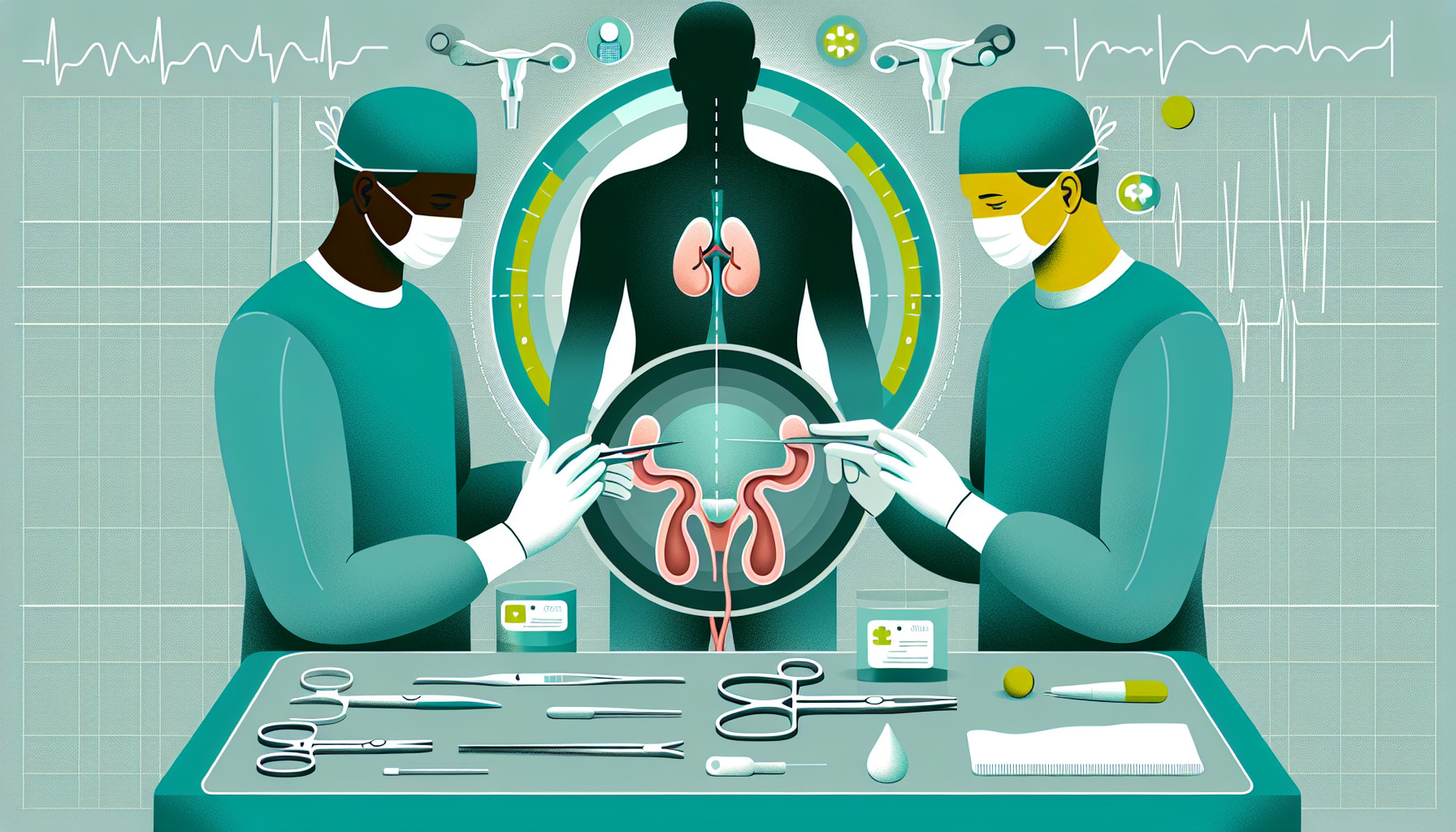Our Summary
This research paper is a review of 33 studies involving 6596 patients who underwent a specific type of bladder surgery called radical cystectomy. The researchers wanted to understand the effects of a more intensive drug treatment program after surgery. They compared patients who received this enhanced drug treatment (3143 patients) with those who didn’t (3453 patients).
The results showed that the group with the enhanced drug treatment had shorter hospital stays, fewer complications, lower readmission rates within 30 days of the surgery, and quicker return to normal bowel movements.
However, the researchers note that more studies are needed to confirm their findings.
FAQs
- What is a radical cystectomy and how many patients in the study underwent this procedure?
- What were the observed benefits of the enhanced drug treatment program after surgery?
- Why do researchers believe more studies are needed to confirm the findings?
Doctor’s Tip
A doctor might tell a patient undergoing cystectomy to discuss with them the option of receiving enhanced drug treatment after surgery, as it may lead to shorter hospital stays, fewer complications, lower readmission rates, and quicker recovery. It is important to weigh the potential benefits and risks of this treatment option with your healthcare provider.
Suitable For
Patients who are typically recommended for cystectomy include those with:
- Muscle-invasive bladder cancer
- High-risk non-muscle invasive bladder cancer that has not responded to other treatments
- Recurrent bladder cancer
- Severe bladder pain or bleeding that does not respond to other treatments
- Neurogenic bladder dysfunction that does not respond to other treatments
It is important for patients to discuss with their healthcare provider the potential risks and benefits of cystectomy, as well as alternative treatment options, before making a decision.
Timeline
Before cystectomy:
- Patient is diagnosed with bladder cancer or another condition that requires removal of the bladder.
- Patient undergoes preoperative testing and consultations with healthcare providers.
- Surgery is scheduled and patient may need to prepare by following certain dietary or lifestyle guidelines.
- Patient undergoes cystectomy procedure, which involves removal of the bladder and possibly other surrounding organs.
After cystectomy:
- Patient wakes up in recovery room and is monitored closely for any complications.
- Patient may experience pain and discomfort, which is managed with pain medications.
- Patient begins recovery process, which includes physical therapy, wound care, and learning how to manage a urostomy bag if one was created.
- Patient may experience side effects such as fatigue, changes in bowel habits, and emotional distress.
- Patient follows up with healthcare providers for regular check-ups and monitoring of any potential complications.
- Patient may undergo adjuvant therapy such as chemotherapy or radiation, depending on the specific condition and stage of cancer.
- Patient gradually resumes normal activities and adjusts to life without a bladder, with ongoing support from healthcare providers and possibly support groups.
What to Ask Your Doctor
- What is the purpose of a cystectomy and why do I need this surgery?
- What type of cystectomy will I be undergoing (partial, total, radical, etc.)?
- What are the potential risks and complications associated with cystectomy surgery?
- What is the expected recovery time and what can I expect during the recovery process?
- Will I need any additional treatments or medications after the surgery?
- How will my bladder function be affected after the surgery and what are the potential long-term effects?
- Are there any lifestyle changes or modifications I need to make after the surgery?
- How frequently will I need follow-up appointments and what will be involved in these appointments?
- Are there any alternative treatment options to consider before deciding on a cystectomy?
- Are there any clinical trials or research studies available that I may be eligible for related to cystectomy surgery and post-operative care?
Reference
Authors: Ding W, Ji R, Abdelrahim MEA, Wang L. Journal: Actas Urol Esp (Engl Ed). 2022 Oct;46(8):447-455. doi: 10.1016/j.acuroe.2022.06.005. Epub 2022 Sep 13. PMID: 36109315
